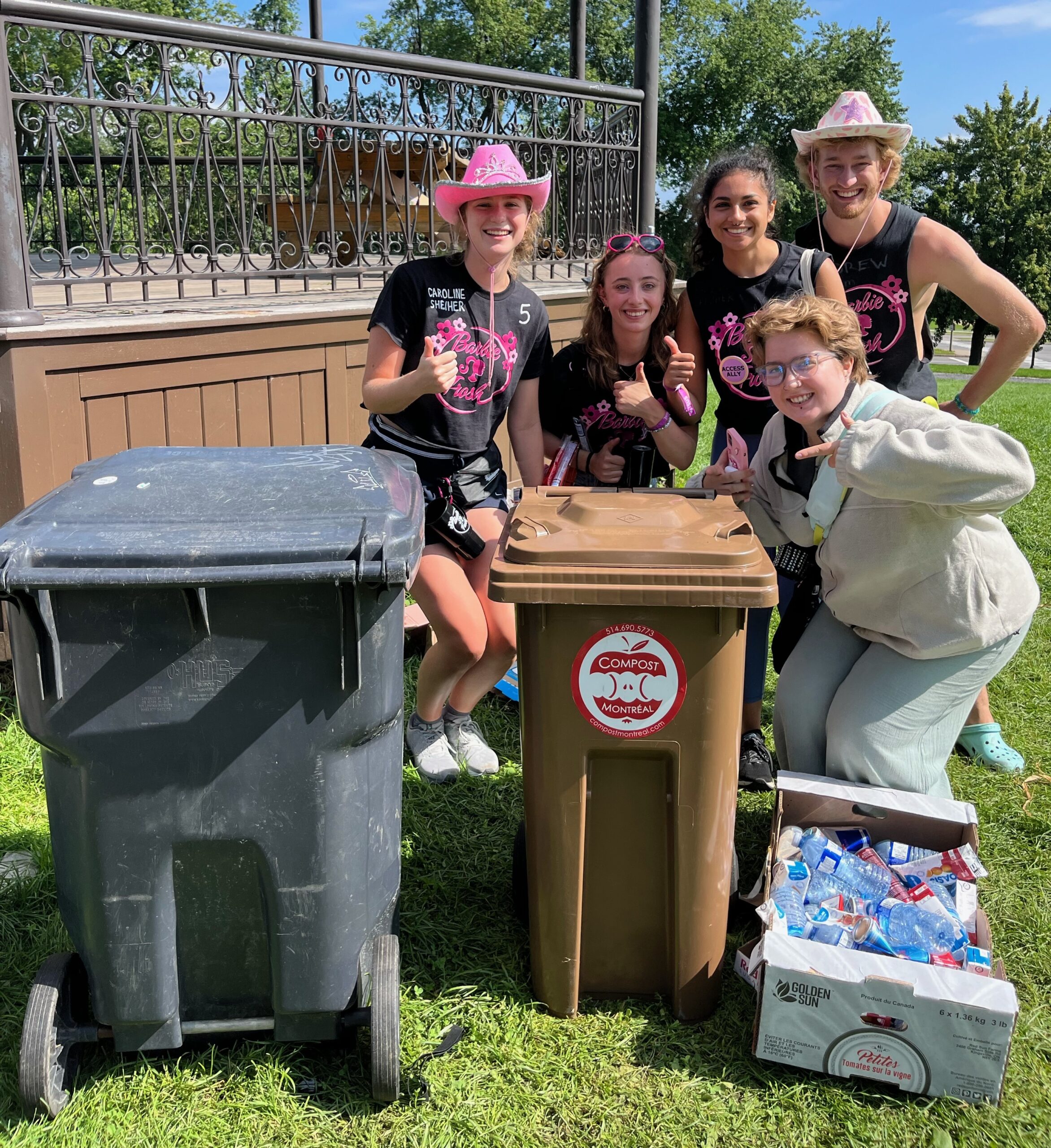Frosh, a student-led series of events designed to bring fellow undergrads together, is an iconic part of Orientation week at McGill. Frosh gives incoming students a taste of the culture of McGill and Montreal as a whole. To set the tone and encourage a culture of sustainability at McGill, students from participating faculty Froshes went above and beyond to reduce their environmental impacts and increase accessibility.
In total, all Froshes, except one which reached a Silver, received a Gold certification through McGill’s internal Sustainable Events Certification Program. Certification was made possible largely thanks to the efforts of the Inclusivity and Sustainability Coordinators (ISCs). ISCs are students that work to implement various sustainable practices at Frosh, such as vegan and vegetarian options, and encouraging the use of reusable mugs.
Resources for a greener frosh

Reducing waste and greenhouse gas emissions associated with the week-long series of events over multiple locations was no easy feat.
“It was difficult to get everyone on the same page because sustainability isn’t at the forefront of event planning in people’s minds. So, I really put my foot down to make sure sustainability was thought of when planning our Frosh,” said Elaine Xiao, ISC for Science Frosh.
The McGill Sustainable Events certification program provided actionable steps through a checklist to provide a vision of a greener Frosh. The checklist covers everything from favouring public transit, to reducing single-use plastic, to considering if sponsors are socially responsible.
“It was exciting to see all the different resources that McGill has to help with sustainable event initiatives,” said Xiao. Many of the checklist actions are accompanied by one-page “quick guides” to provide additional information to support implementation.
Food waste and packaging destined for landfill can be a significant aspect of a large event’s environmental impact. Having compost bins at food-related events was one of the most successful parts of making Frosh more sustainable, according to Xiao.
Plus, some inter-faculty generosity meant that more students were able to compost their food waste. “We shared [compost bins] with a couple other [faculties] so that we could all have compost bins at our food events,” explained Xiao. Compost services were financially supported by the Sustainability Projects Fund.
Setting the tone for new students
Sustainability goes beyond purely environmental concerns to include social and economic dimensions. This is reflected in the many accessibility and inclusivity related items in the checklist, for example, having a sliding-scale pricing for Frosh tickets. Access Allies, who are specifically trained on how to make Frosh safer and more accessible, are another essential part to inclusivity at Frosh.
Accessibility was central to Xiao’s work as an ISC. “I enjoy making sure that the events are accessible to as many people as possible. When inclusivity and sustainability were a part of the same certification, it was right up my alley.”
For many students, Frosh is their first impression of McGill, so it’s an important chance to encourage them to be sustainable members of the McGill community.
“It’s important to push sustainability practices when they come in, so that they start off with a precedent understanding that we’re trying to be more sustainable and that we’re doing everything that we can to slowly take steps towards it,” explained Xiao.
The goal of a greener Frosh is to have students remember their first experiences at McGill as ones centred around sustainability and accessibility. Looking to the future, Xiao is hopeful that the changes made at Frosh will impact McGill on a larger scale: “We’re slowly trying to adopt a more sustainable outlook on all events at McGill. I think that’s important.”
To incorporate best practices for your own upcoming events, read the sustainable events certification page.
